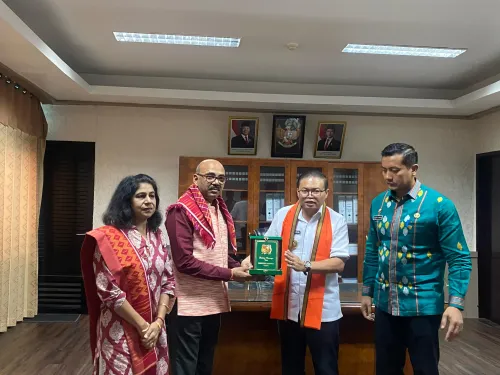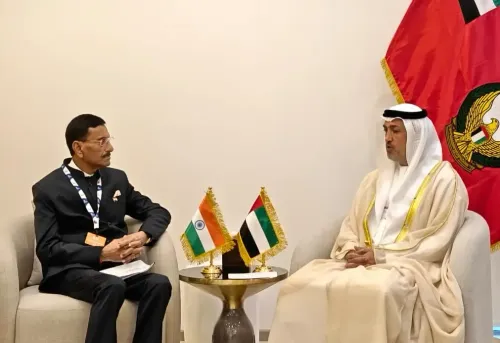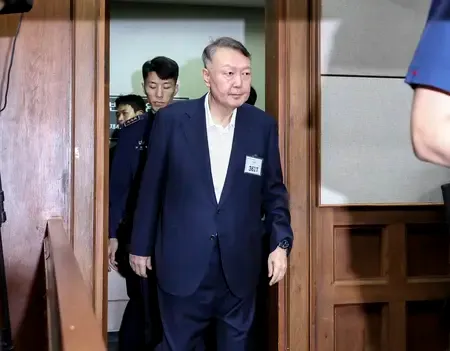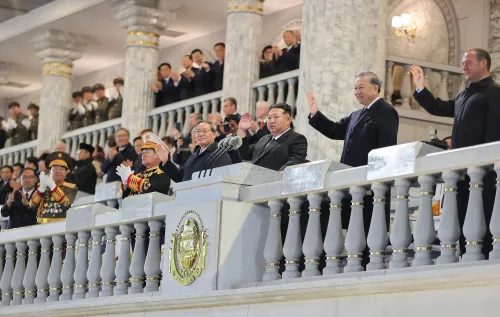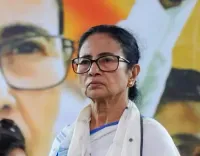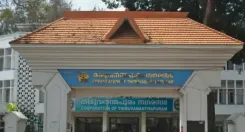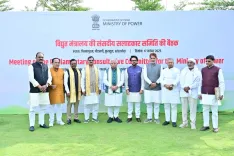How Does Gandhi’s Message Inspire Strength for Peace in Divided Times?
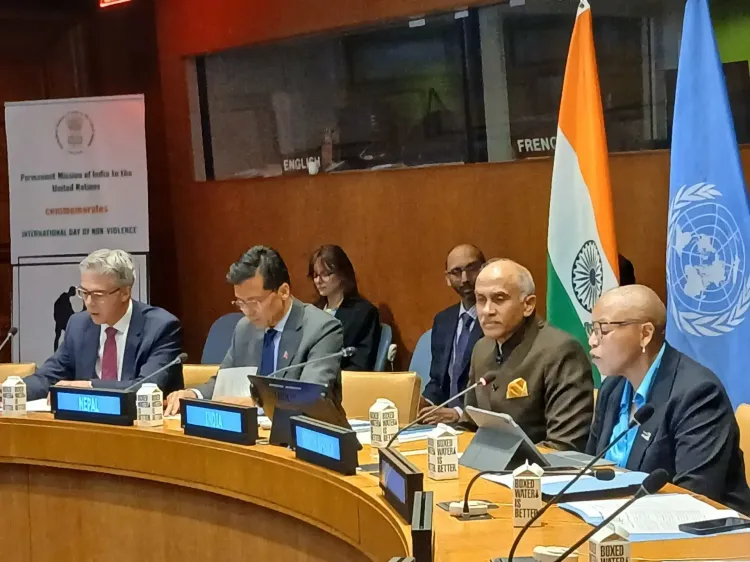
Synopsis
Key Takeaways
- Gandhi's teachings advocate for non-violence as a strength.
- Dialogue is essential in overcoming contemporary conflicts.
- Global leaders emphasize the relevance of Gandhian principles today.
- Celebrating Gandhi Jayanti promotes peace and unity.
- Non-violence contributes to justice and nation-building.
United Nations, Oct 3 (NationPress) In this “dangerous and divided” era, Secretary-General Antonio Guterres has urged individuals to draw inspiration from Gandhi’s teachings to strive for a “just, sustainable, and peaceful world”.
“Gandhi recognized that non-violence is not a weapon of the weak; rather, it is the strength of the brave,” he stated, emphasizing the ability to resist injustice without hatred, confront oppression without cruelty, and foster peace through dignity instead of domination.
Guterres remarked that in the current climate, “Violence is overshadowing dialogue” and the “foundations of peace are under pressure”. He implored, “In these perilous and fractured times, let us gather the strength to follow his example, alleviate suffering, promote diplomacy, mend divisions, and establish a just, sustainable, and peaceful world for everyone.”
The General Assembly established the Day of Non-Violence in 2007 to highlight “the universal significance of non-violence” on Gandhi’s birthday annually.
In honor of Gandhi Jayanti and the Day of Non-Violence, India’s UN Mission organized a discussion centered on “The Relevance of Non-Violence and Gandhian Principles for Building Sustainable Global Peace.”
India’s Permanent Representative P Harish noted that the desire for peace has been echoed across civilizations for millennia through various invocations and greetings.
This yearning finds expression in the “Indian Shanti mantras” from the Vedas and Upanishads that call for Shanti or peace within ourselves, in the outer world, and in the divine realm.
It resonates in the Arabic greeting wishing Al-Salaam or peace, and the Jewish greeting of Shalom or peace, he added.
“The strong connection between Gandhian values and sustainable peace presents a compelling argument for applying these principles, even amid today’s intricate global challenges,” he remarked.
Economic and Social Council President Lok Bahadur Thapa pointed out that the UN’s Sustainable Development Goals (SDGs) align with Gandhian values.
Thapa, also Nepal’s Permanent Representative, emphasized, “Gandhi's commitment to non-violence, self-sufficiency, and inclusive progress resonates with our call for transformations grounded in empathy, equity, and shared responsibility.”
“Non-violence is not merely the absence of action,” he clarified. “It is resistance guided by moral principles. It embodies the strength to confront injustice without hatred and seeks to build peace through empathy and shared humanity.”
The seeds of Gandhi’s philosophy of non-violent activism were sown during his time as a young lawyer in South Africa, and these principles re-emerged during the fight against apartheid.
Mathu Joyini, South Africa’s Permanent Representative, stated, “His ideas, initially shaped by the discrimination faced in South Africa, evolved into the liberation force for India and many other revolutionary movements worldwide.”
“His principles have not only influenced leadership in India but have also significantly impacted the struggle against apartheid in our country,” she remarked.
“South Africa’s peaceful transition to democracy, achieved through dialogue, reconciliation, and forgiveness, reflects the lasting power of non-violence as a tool for justice and nation-building,” she added.
Germany’s Permanent Representative Ricklef Beutin noted that the following day, Friday, marks German Unity Day, celebrating the reunification of East and West Germany.
“German Unity was achieved without a single shot being fired,” he remarked, illustrating the importance of non-violence. “The Gandhian principle of fostering sustainable global peace is more relevant than ever, as it reminds us that despite our complex challenges, the tools of dialogue, patience, and reconciliation remain powerful.”
Romania’s Permanent Representative Cornel Feruta stated that the International Day of Non-Violence “assumes that we can create a positive environment to prevent violence from occurring” rather than merely reacting to it.
“This wisdom is something we at the United Nations must absorb and incorporate into our discussions,” he expressed. “It’s something we cannot improve upon better than Mahatma Gandhi or other spiritual leaders or thinkers globally.”
Earlier, Harish honored Gandhi by placing a garland on his statue within the UN complex.
India’s Consul General Binaya Pradhan took part in celebrations marking Gandhi Jayanti at two of Mahatma’s statues in the vicinity.
At the statue located in Union Square, New York City, bhajans were sung in tribute to Gandhi.
Pradhan emphasized that Gandhi’s message encompassed not just the ends but also the means employed, while maintaining that non-violence remained at the core.
The other celebration took place at the Peace Garden in the State University of New York Campus in Old Westbury, where Gandhi was honored with a statue.

